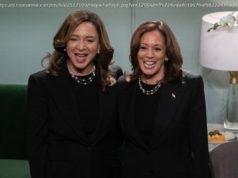Senator Mitch McConnell of Kentucky, the majority leader, promises a “free and open debate” on immigration if Democrats will vote to reopen the government.
• The Senate is set to vote at noon to reopen the government.
• Democrats remain leery.
• At issue: Will Democrats trust Senator Mitch McConnell’s word?
Senator McConnell of Kentucky, the majority leader, said on Monday morning that the Senate would move ahead with a scheduled procedural vote at noon on a proposal to fund the government through Feb. 8, and he urged his colleagues to put an end to the shutdown.
“Every day we spend arguing about keeping the lights on is another day we cannot spend negotiating DACA or defense spending or any of our other shared priorities,” Mr. McConnell said, referring to Deferred Action for Childhood Arrivals, the program put in place by the Obama administration that shields young undocumented immigrants from deportation.
Mr. McConnell reiterated a pledge he offered on Sunday night that he intended for the Senate to take up immigration legislation in February if the issue has not been resolved by then. A major question as senators seek to end the shutdown is what kind of commitment Mr. McConnell is willing to make regarding the consideration of legislation for the young immigrants, a central issue in the current impasse.
On Monday, Mr. McConnell pledged that the Senate’s immigration debate would have “a level playing field at the outset and an amendment process that is fair to all sides.”
“The very first step is ending the government shutdown,” he said.
— Thomas Kaplan
Moderate Senate Democrats Monday morning were seeking a firmer commitment from Mr. McConnell that the Senate would move to address the fate of hundreds of thousands of young undocumented immigrants, known as Dreamers, in the coming weeks.
The Democrats were part of a bipartisan group of more than 20 senators working throughout the weekend to forge a compromise to reopen the government. Mr. McConnell signaled Sunday night that he was listening to their demands, saying from the Senate floor that he intended to move ahead with immigration legislation in February if the issue had not been resolved by then.
But on Monday, Democrats wanted more in exchange for the votes to end the shutdown.
“Well I think the first thing he needs to do is strengthen his statement from last night,” said Senator Angus King of Maine, an independent who votes with the Democrats. “ ‘I intend.’ I would much rather he say, ‘I commit’ or ‘I will move.’”
As senators from the group shuffled in and out of leadership offices, Senator Jeff Flake, Republican of Arizona and another member of the group, expressed optimism that such a public statement by Mr. McConnell would be enough to win over enough Democrats to vote to end the shutdown. Some Democrats called on Mr. McConnell to delay a procedural vote schedule for noon.
The crux issue, it seemed, was whether the majority leader could be trusted to keep his word. Democrats have not forgiven Mr. McConnell for blocking the Supreme Court nomination of Merrick Garland for almost a year pending the election of a Republican to the White House. And Mr. McConnell’s promises to Republican Senators Flake and Susan Collins of Maine for votes on health care and immigration in exchange for their support of the tax cut have yet to materialize.
How much of the issue is that mistrust?
“Uh, most of it,” said Senator Joseph Manchin III,Democrat of West Virginia.
— Nicholas Fandos
On Monday morning, a telephone call to the White House comment line reminded callers that the federal government was shutdown and offered the Trump administration’s explanation for why: “Unfortunately, we cannot answer your call today because congressional Democrats are holding government funding for our troops and other national security priorities hostage to an unrelated immigration debate,” a recording said. “Due to this obstruction the government is shut down.”
Setting aside the partisan nature of the call, its message is only half true, if that. Most of the government is functioning, at least for now. The Environmental Protection Agency and the Federal Communications Commission say they have enough money in the pipeline to operate normally. The White House ordered the National Parks to stay open, depriving the media of the most obvious signs of dysfunction.
Even Robert S. Mueller III, the special counsel investigating Russia’s intervention in the 2016 election and any possible collusion with the Trump campaign, is still in action. He has declared his investigators “essential employees.”
— Eileen Sullivan






